*This post may have affiliate links, which means I may receive commissions if you choose to purchase through links I provide (at no extra cost to you). As an Amazon Associate I earn from qualifying purchases. Please read my disclaimer for additional details..
Maybe you have bees or marigolds at your house. And maybe you are looking for ways to attract or repel bees from your garden. Whatever situation you are in, you want to know if marigolds can attract bees. Do bees like marigolds?
Marigolds are among some of the popular plants grown in the garden that bees are attracted to. Even though marigolds have a smell that can repel some insects, they do not repel honeybees as bees need their nectar for honey production.
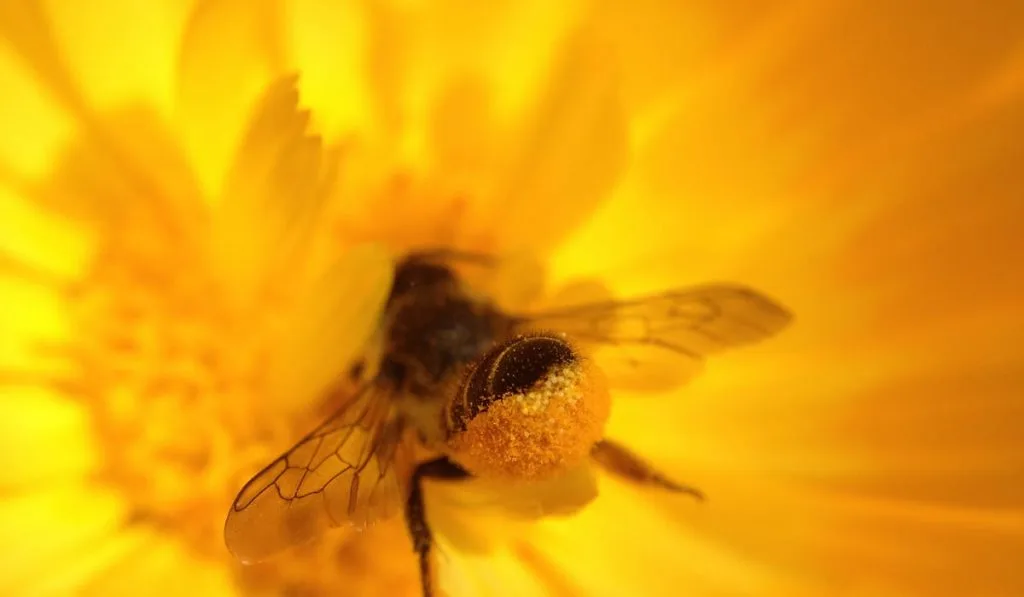
Do bees harm marigolds? Why don’t marigolds repel bees? What insects do marigolds repel?
Table of Contents
Bees And Marigolds
Bees are important insects to the earth. If not for bees and other pollinators, you would not find so many varieties of fruits, and vegetables. Without bees and pollinators, the earth cannot continue to sustain life.
All living things directly or indirectly consume plants (of which most must be pollinated to reproduce).
As you can see, bees are very important. This does not mean that they can’t be pests in the garden. Most people plant flowers and companion plants to repel insect pests. Some say that marigolds have a pungent smell that can repel a lot of insects.
It is true that marigolds can repel some insects, but marigolds do not repel bees.
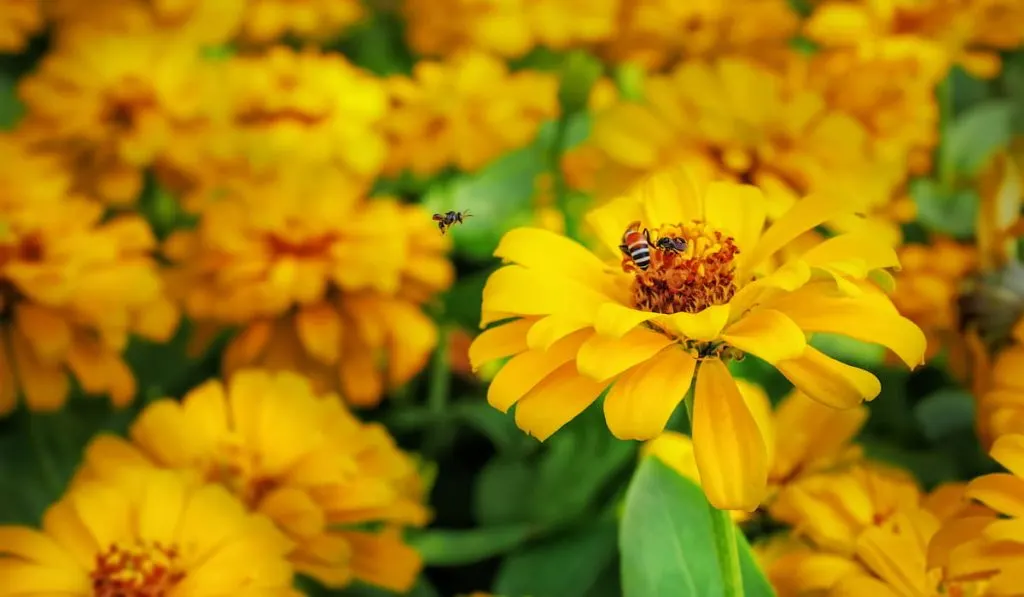
Why Do Marigolds Not Repel Bees?
First of all, you probably would like to know why marigolds can repel some insects. There are some insects (to be discussed later) with a good sense of smell.
These insects usually search for plants to destroy or look for food in the plants. As for marigolds, their pungent smell can repel these insects as they do not like the smell.
As for honeybees, they only go to plants with flowers. Honeybees need nectar from flowers to produce honey. Honeybees also collect pollen from flowers as a source of protein.
This means that when flowering, the smell of marigolds does attract pollinators while it repels some other insects.
What Bees Do To Marigolds
Here are some activities carried out by bees when they visit marigolds:
- Collect Nectar: Nectar is a sugar-rich liquid in flowers. Bees collect nectar to make honey. Without nectar, bees cannot make honey and without honey, bees cannot survive the winter.
- Pollinate: This is a major ecological process. Bees pollinate flowers so that the flowers can produce seeds or fruits. Pollination can activate suckers in some plants.
- Collect Pollen: Finally, bees collect excess pollen from the flower. Pollen is rich in protein.
As you can see, bees visiting marigolds is a win-win situation. The bees win, the marigolds win, you also win. That’s awesome.
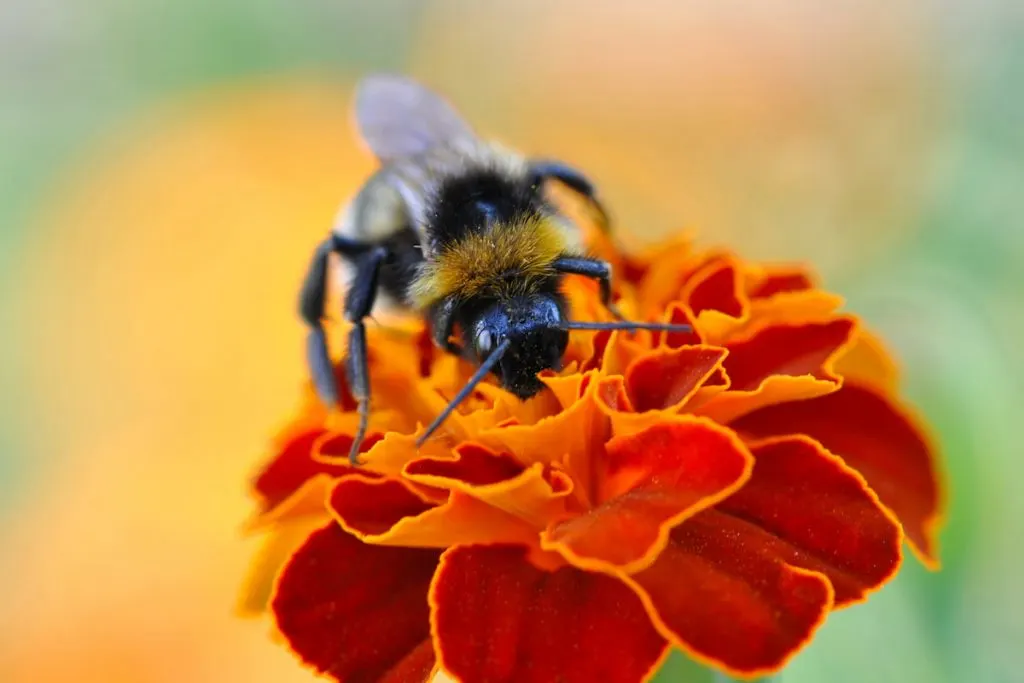
Insects That Marigolds Repel
Even though marigolds do not repel bees, they do repel some insects. Here are some examples:
1. Mosquitoes
What is the major killer of people? Malaria kills millions of children and people annually. Mosquitoes are the vectors of malaria. Even more important, mosquitoes can also transfer some other diseases such as filariasis.
They bite your skin and leave some itchy spots on your skin when they suck on your blood.
You really need to get rid of mosquitoes. While there are various ways to do so, you can repel mosquitoes with marigolds. Plant the marigolds close to your window and any part of your home where mosquitoes can have access to you.
2. Mexican Bean Beetles
Ladybug beetles are beautiful insects that everyone wants on their lawn. , not this bad guy. Many gardeners introduce ladybug beetles into their garden to control the population of aphids and other little pests.
As for the Mexican beans beetle, it is a unique ladybug beetle that is actually a pest to plants.
The Mexican bean beetle can destroy plants in your garden, so you do not want them there. You should plant marigolds as a companion plant to repel these pests.
3. Tomato Hornworms
Butterflies and moths are pretty insects that everyone loves to see. They are not so welcome when they are caterpillars they can be extremely destructive. The tomato hornworm is a moth that lays eggs on plants (for example, tomatoes).
When their young hatch, they eat every leaf, petiole, seed, fruit, etc. from the plant. They are destructive and can reduce the yield of gardeners. This is why most gardeners use marigolds as companion plants. Marigolds can (to some extent) repel tomato hornworms.
As you can see, marigolds have proven to be very effective. Plus they also attract bees to your garden so that the bees can help pollinate your garden crops.
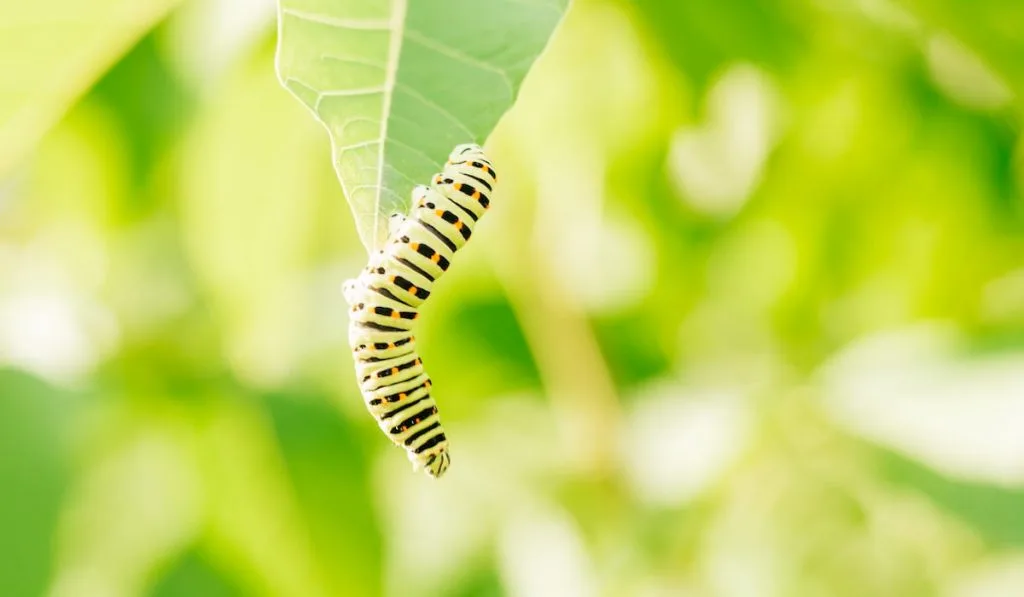
Related Questions and Answers
1. Why Are Bees Not Coming to Your Garden?
Here are a few reasons bees may not be visiting your garden:
- There Are No Flowers Yet: Bees visit plants to collect nectar and pollen from their flowers. If there are no flowers in your garden, you will not find any bees.
- There is No Beehive Nearby: If you do not live close to a beehive, you will find fewer (or no) bees in your garden.
- Bee Scouts Are Yet to Find Your Garden: If this is the case, you just have to wait for the scouts to find your garden.
- Maybe They Have Pollinated Your Garden: Unless you are in your garden 24/7, you might’ve missed the bees when they visited your garden. You just have to wait 5-7 days to notice developing fruits in your plans.
Don’t worry, aside from bees, there are other pollinators so your plants will surely bear fruits.
2. How Do You Repel Pests Such As Flying Insects?
To prevent or repel pests from your garden, use the tips below:
- Do Not Allow Weeds to Grow Close To Your Home: Weeds are a source of food and shelter for pests. A land free from weeds has fewer pests.
- Maintain a Clean and Level Lawn: Many insect pests do not stay in places where the lawn grass is low. This is because most pests want to stay hidden from the light.
- Plant in a Controlled Environment: If you are disturbed by pests, you should plant tender crops in a place where pests have no access such as a greenhouse.
Repel destructive pests from your garden.
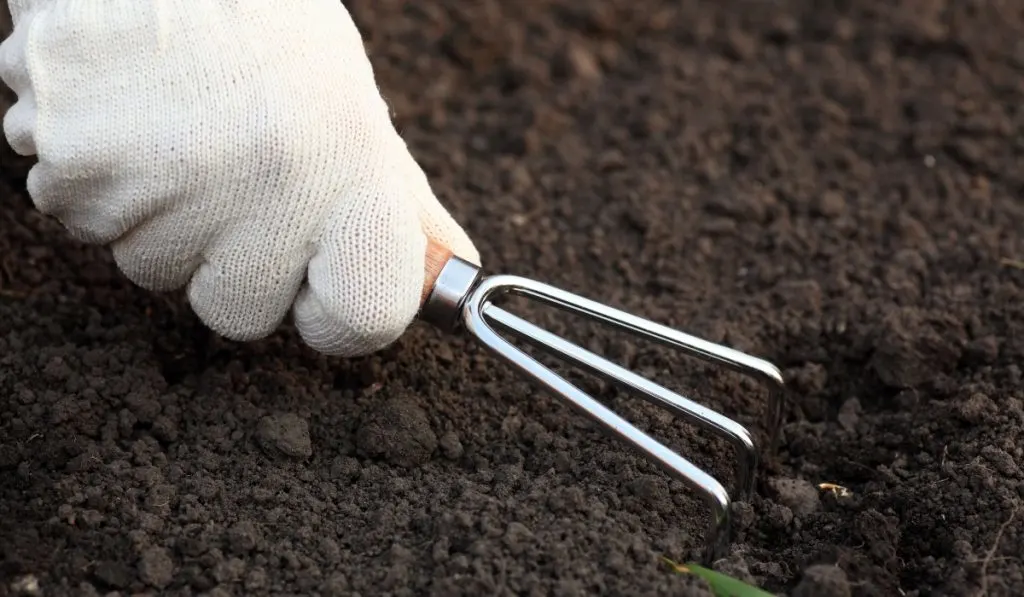
3. How Do You Stop Marigolds from Attracting Bees?
If you don’t want bees in your garden for your own reasons, here are some tips to prevent your marigolds from attracting bees:
- Remove the Flower: Bees visit plants with flowers. Without flowers, your marigolds will not attract bees.
- Plant Your Marigolds Around Plants Without Flowers: With fewer flowers in the garden, bees will not go there. The secret to preventing bees from your garden is to remove flowers for pollination.
You should note, however, that it is a different case if the beehive is close to your garden.
4. What Plants Repel Bees?
Not many plants repel bees as bees are after their flowers. Any plant without flowers will not attract bees. A few plants that may have the potential of repelling bees are:
- Lemongrass
- Ranunculuses
- Dahlias
- Wormwood
- Ornamental Grasses
Note that if a plant produces flowers that need insect pollination, you should not prevent bees from visiting the flowers.
5. Should You Run Away From Bees in Your Garden?
Many people fear bees because of their sting. You should fear bees when you are near their hive. If you find bees far away from their hive, you don’t have to be afraid of them as they will not harm you.
Bees only get offensive when you are too close to their hive. To be safe, however, do not go too close to the bee.
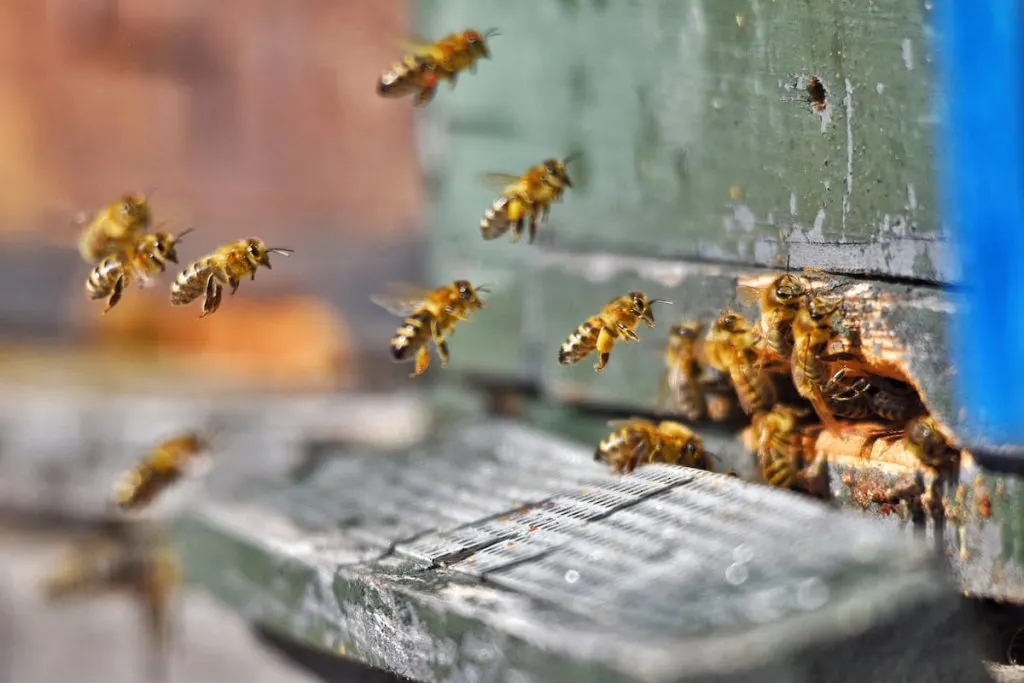
Final Thoughts
Bees love marigolds. Even though marigolds repel different insects, they do not repel bees when they are flowering.
Bees help pollinate different plants, so you should allow bees to visit your garden so that they can pollinate your plants.
